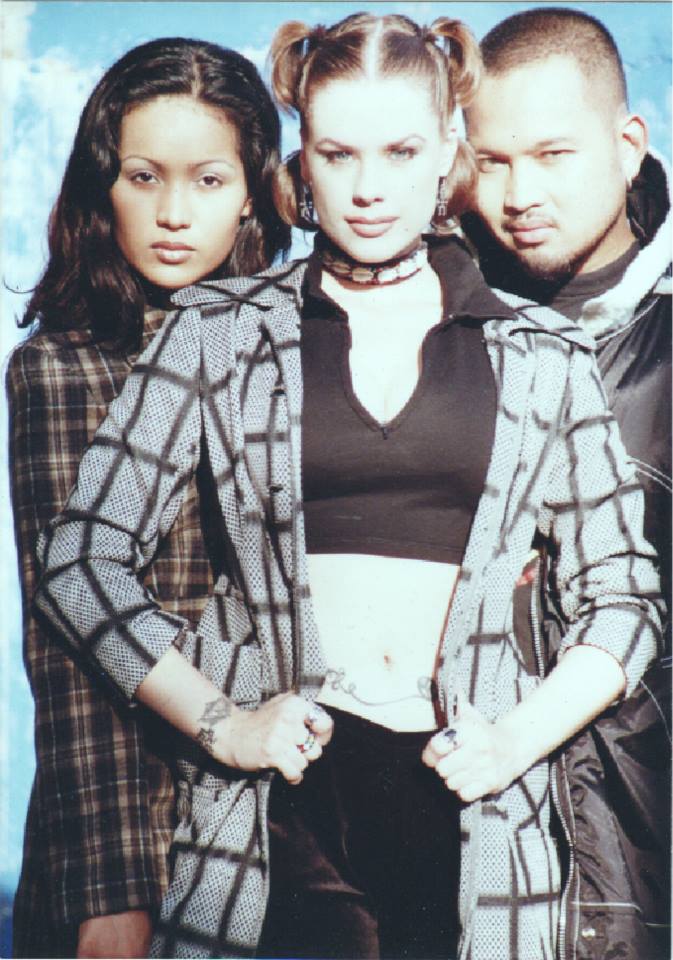
In a time when most Filipinos were listening to alternative rock, Filipino-Canadian Boom Dayupay and his hip-hop band Kulay’s arrival to the Filipino music scene was a breath of fresh air.
Fresh start in Canada
Boom Dayupay and his family migrated to Vancouver in 1977. Up till now, Boom can still recall candid memories from his first trip to Canada.
He remembered how amazed he was of how big and clean Canada was. It was also in this trip where he first saw a ‘white stewardess’.
The Dayupays’ early years in Canada was not a walk in the park. His father who once served for the Air Force of the Philippines had a hard time adjusting to a drastic change in his career.
“My dad had a hard time because he was in the air force and life was easy for him. Then he came here and he was a janitor.” said Boom.
“He was having a hard time speaking English. He was working with this Ukraine guy who doesn’t speak English also. He kept screaming at him and calling him stupid so he just wanted to go back to the Philippines after 2 weeks,” Boom continued.
Boom, on the other hand, adjusted to his new life in Canada fairly well. He wanted to learn English fast. After a year, he was already fluent in the language.
The great white north has changed a lot since the 1970s. As part of the 3rd wave of Filipino immigrants, Boom saw Canada how it once was.
“There were just not many Filipinos, at all. When I came to school, there was only four of us—my sister and two other Filipinos. Unlike now, there are so many Filipinos, Chinese. Back then, there wasn’t as many,” he recalled.
The music starts to play
Unlike most artists, Boom did not come from a family of musicians.
“My parents were never really musical. I joined the school band playing saxophone. From there on, I just really got into music and DJing,” he shared.
“I was a DJ then I became a producer. I produced some acts and then after a while, I went to the Philippines,” he added.
It was 1991. Boom and his Canadian then-girlfriend Jeannie Oakman flew to the Philippines to start a band. After a while, Radha Cuadrado joined Boom and Jeannie.
Comparing the diversity of the members of the group to an Oreo sandwich, where two chocolate cookies squeeze a vanilla filling in between, Boom decided to name the band Kulay, the Filipino word for color.
“I called it Kulay because of the colors that we had. I look kinda black and Radha is kinda Indian, Filipina-Indian. Jeannie is, you know, blue-eyed. It was an amazing mix. So that’s why I called it Kulay,” Boom said.

In 1995, Kulay released its debut album 100,000 Worth of Karma. Boom, Jeannie and Radha as Kulay was very successful. In 1997, the group got signed internationally. Kulay seemed to have everything going for them, until an unfateful day came. Just two weeks after getting signed internationally, Jeannie died of an epileptic seizure. Jeannie’s passing hit home for Boom and Radha.
“I just went home and got her body back here (Vancouver) and I didn’t want to do anything anymore. I kind of quit music,” Boom said.
The new Kulay
Even when Jeannie was gone, Kulay had to continue touring Europe. The head of Sony Music called Boom countless times to convince him to go back to the music business, saying that Kulay will be making history. A Southeast Asian act launch launched internationally has not been done during that time.
But what realty convinced Boom to come back was the memory of Jeannie.
“Jeannie would have wanted us to continue. We just have to keep going,” Boom said.
“We knew that it should be the right thing to do, to keep it going because the momentum was so strong to go forward. We were thinking, ‘We should do something about this because it took us 7 years to get it done,’” he added.
Kulay held an audition and found Angel Jones. They took her in and a new Kulay was formed.
“She can hold a note and she can entertain. She did great doing her part,” Boom said of Angel Jones.
Kulay career skyrocketed while touring Europe. They performed in UK and other European countries. Their track hit the Billboard Charts. They had television shows, commercials, and became the face of Pepsi.
Despite Kulay’s international success, the dent that Jeannie’s passing left to the group, coupled with Boom’s faltering interest in performing served as prelude to the band’s falling out.
“We weren’t feeling it. It was sort of a survival,” Boom said of Kulay’s tour abroad.
“That would have been the perfect time to pick up drugs ‘cause we were on the road so much. It was too depressing sometimes. We were not as known. We played all these places and we did our best but it’s not like the Philippines where we were known. We were just trying our best to make it. Some shows were great. Some shows were okay. Some shows were not,” Boom shared. “My heart just wasn’t to it anymore. It was hard without Jeannie,” he added.
“After about two years, I didn’t want to do it anymore. We were not doing well together,” said Boom.
Kulay finally disbanded in 1999.

Life after Kulay
Boom took on directing. He worked for UNITEL, a production house based in Makati, Metro Manila and directed television commercials, music videos, and campaign ads.
“It was hard for me because I was working with directors from the business. I was the youngest and all of them went to school and I never went to school for directing,” he said.
Then, Boom came back to Canada got married, and had children.
“I married Angel after a while. We have four children, three were adopted and one biological,” Boom shared.
Today, Boom continues his passion in directing and producing music.
He plans to release the album of Malaya, a rock band he’s part of, together with former Razorback bass player Louie Talan. Boom has also written a couple of singles that he also wanted to release.
He is currently directing a documentary called, “The Journey of Boom”. For this documentary, Boom went to the northernmost part of Canada in winter to answer the question of why a Filipino would want to work in a place as cold as that.
The Journey of Boom will tell the story of how much Canada has changed through Boom Dayupay’s eyes.
“When I first moved to Vancouver, it cost a dime to ride a bus. Pierre Elliot Trudeau was the Prime Minister. And the only Filipino worker in the McDonald’s that I used to go to was a janitor. Now, it cost two seventy-five to take a bus. But there’s also a sea bus and sky train which never existed before. Justin Trudeau is now the Prime Minister. And that same McDonald’s that I used to go to now has 70% Filipino staff, including the manager,” Boom said in his documentary’s trailer.

All photos courtesy of Boom Dayupay